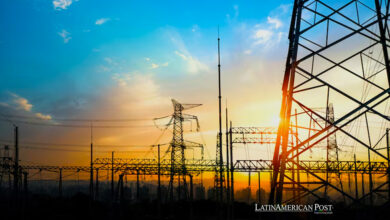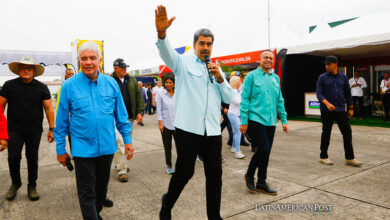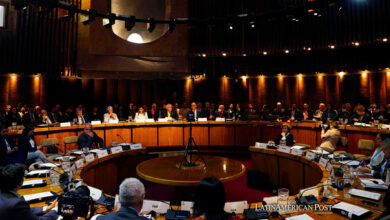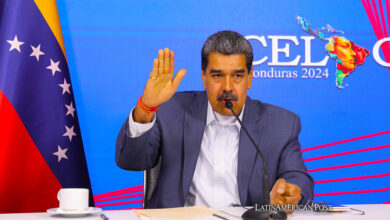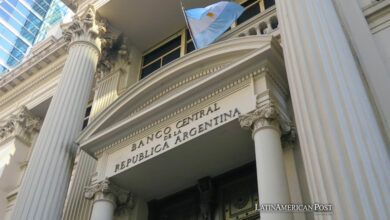New Economic Failure: Venezuela Changes Its Currency Again
The BCV made official the new monetary guideline for the Caribbean country: a new conversion that seeks to adapt its currency, the Bolívar, to a digital ecosystem.

The creation of the so-called Bolívar Digital also brings the elimination of 6 zeros to the amounts, with the aim of facilitating transactions and banking operations. Photo: Foreign Ministry of Ecuador
LatinAmerican Post | Anderson Ayala
Listen to this article
Leer en español: Nuevo fracaso económico: Venezuela vuelve a cambiar su moneda
The creation of the so-called Bolívar Digital also brings the elimination of 6 zeros to the amounts, with the aim of facilitating transactions and banking operations. This new measure will officially enter into force as of October when Venezuela thus 're-debuts' its currency for the second time in three years, and for the third time in more than a decade.
The decision, although it may seem that it responds to technological or avant-garde criteria, does so in reality to the need not to appeal anymore to printed money, given its unfeasibility in a scheme of high inflation. However, in the voice of several Venezuelan economists, it was a necessary measure to release the pressure that was hanging over the financial system.
COMUNICADO OFICIAL????| A partir del 1° de octubre entra en vigencia el Bolívar Digital
#BCV???????? https://t.co/635uhVu1sA pic.twitter.com/aErAOUvwHL— Banco Central de Venezuela (@BCV_ORG_VE) August 5, 2021
This is how the Sovereign Bolívar reaches the end of its short life, which had seen light with the monetary reconversion of 2018 when 5 zeros were eliminated from the currency. The same happened before to the Bolívar Fuerte, which had come into effect due to the 2008 reconversion when only 3 zeros were eliminated from the amounts.
Although it is a new restructuring of the bolívar, this time the BCV's intention is expressed not to return to printed money. Although it is a fact that in Venezuela today it is difficult to see cash – unless it is dollars – without mentioning the extinct species that are currencies, it is now clear that the digitization of the bolivar will cover more and more transactions.
Although in Latin America digital money is a reality, beyond cryptocurrencies, so far no country has taken serious steps to consolidate its currency only in a digital ecosystem. In Venezuela, however, this occurs in a context marked by the slowest internet in Latin America, by the widest digital divide, and by one of the highest insecurity rates in the world. Serious obstacles that can haunt the life of the new coin.
Also read: These are the Cryptocurrencies You Should Invest in
This is without mentioning the biggest problem it will face: inflation, which for the month of June already reached an accumulation of 333% so far in 2021, according to measurements by the Venezuelan Observatory of Finance. However, to combat this, a conversion by itself has no effect; it must be accompanied by other measures that stabilize the currency.
Of course, when the government of Nicolás Maduro has already accumulated more than 7 years financing its high public spending with the issuance of inorganic money -and generating inflation-, especially in the face of a decrease in income from oil production, it looks very uphill that any other measure may have positive effects.
The new conversion, with the full adaptation of the Bolívar in a digital 'environment', also occurs in an economy that has practically been dollarized, to the point of reaching procedures in public offices and payment of taxes. Perhaps its greatest short-term benefit will be to ease banking operations.
Digital currencies are increasingly a subject of debate in many developed countries, and even in the United States, the Federal Reserve has come to raise the possibility of introducing a Digital Dollar. This trend of money without physical existence, perhaps, is the one that ends the era of fiat money.
In Venezuela, it seems to be a near reality, but above all at a nominal and superficial level, until inflation returns to do its thing and cancels the changes introduced in the last quarter of 2021.

